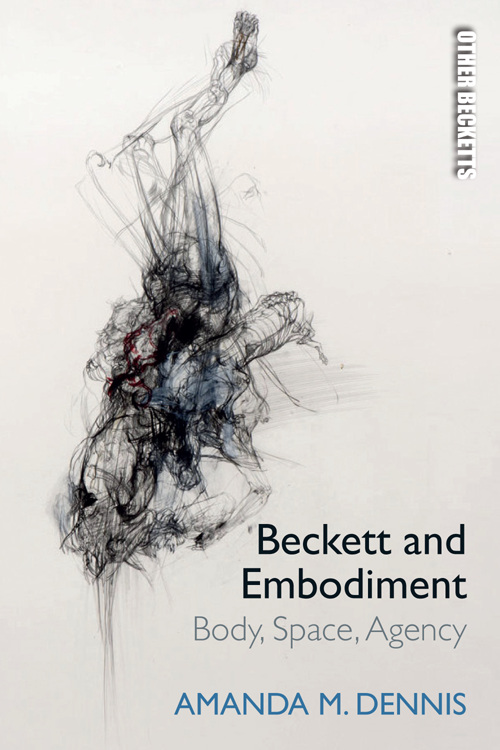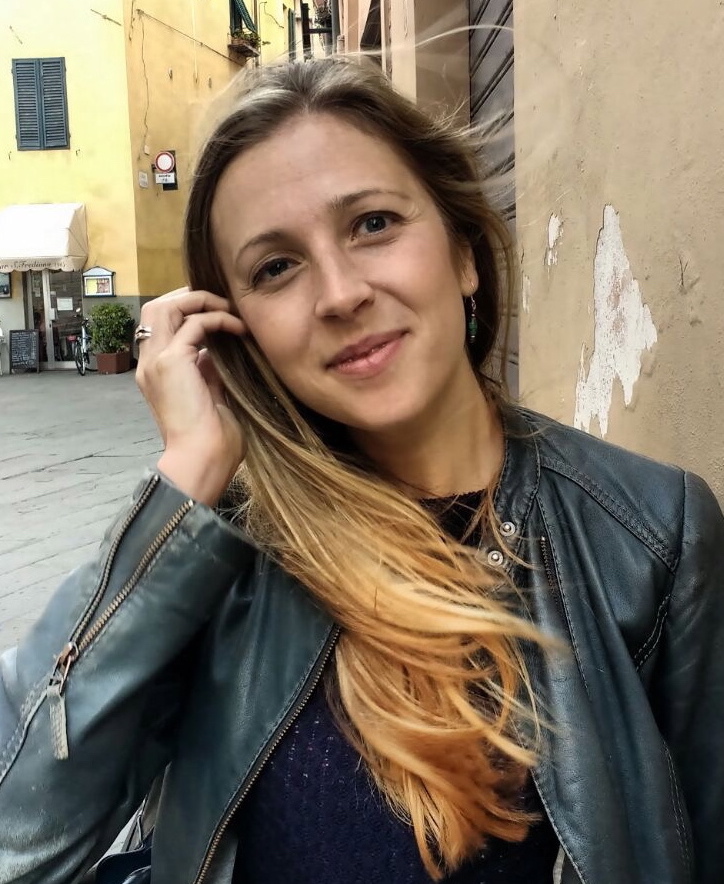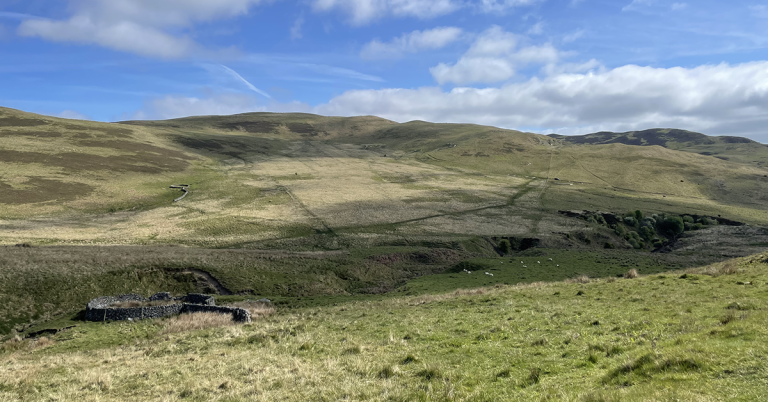
by Amanda M. Dennis
Tell us a bit about your book.
Beckett and Embodiment interrogates the strange, disconcerting representations of the human body across Samuel Beckett’s work. Such attention to the body and the varied forms it takes—often integrated with material objects or merged with nature—unmasks a common assumption about Beckett; rather than equating his decrepit bodies with the impossibility of human action, my book locates an alternative form of agency emerging over Beckett’s artistic career.
This “material” agency is opposed to voluntarism, and it is predicated on the human body’s integration within its environment. My argument draws on Maurice Merleau-Ponty’s phenomenology, which stipulates that the body is not an impediment to perception, but rather our only mode of access to the sensory world.
Material agency in both Beckett and Merleau-Ponty resonates with contemporary debates around environmental ethics, insofar as our capacity for action depends, paradoxically, on the fact that our bodies are integrated within the material world.
What inspired you to research this area?
I was fascinated by the way in which 20th-century French philosophy cast subjectivity in a new light. But if subjectivity is untethered from a discrete individual, responsible for her actions, what happens to agency? How do we act in a world in which discrete selves are understood as constructs, effects of larger forces that act through us? It was my search for an alternative model of agency that led me to Merleau-Ponty, who locates subjectivity (and the possibility of agency) in the physical body, particularly its position in space, its perspective.
Similarly, I found in even the most abject descriptions of the body in Beckett—bleeding sores, bad sex, rapidly talking heads emerging from urns and jars, and human forms swallowed by ever-encroaching earth—a tremendous vitality. I wanted to see if the vitality I found in Beckett’s writing and imagery could signal a version of agency that was different from voluntarism, an alternative to Enlightenment humanism and the separation it implies between a sovereign subject and the world on which it acts.
Did you discover anything particularly strange or surprising?
A major breakthrough came when I realized the extent to which Merleau-Ponty’s phenomenology anticipates much of contemporary literary critical debate around posthumanism and new materialism. Some theorists, like Diana Coole, make the connection between Merleau-Ponty and new materialism explicit, and “eco-phenomenologists” argue that ecological thought is a natural extension of phenomenology. This was exciting because it allowed me to bridge toward an ecological reading of Beckett’s work. In other words, embedded in Beckett’s representation of embodiment is an implicit emphasis on ecology. This is a connection I hadn’t anticipated at the start, and certainly there is a lot more work currently happening and still to be done around Beckett and the environment.
Did your research take you to any unexpected places or unusual situations?
During my research of this book, I wrote a novel that addresses many of the same themes: the question of subjectivity, the slipperiness of identity, the ways in which human consciousness can be “spread” across different bodies, landscapes, and spaces. Her Here is an existential detective story, a missing person tale told in part through the perspective of the missing person—at least the language she leaves in her wake. It was energizing to be able to “think fictionally” as well as in the more explicit language of literary criticism, and this led to enriching discussions with another writer about the role of space and place in fiction and with a neuroscientist about the role of narrative in ordering our conceptions of morality.
Has your research in this area changed the way you see the world today?
I believe in the value of humanist agency, in action that is intentional and directed toward a specific outcome. And I see “material” agency of the sort I sketch in my book as a necessary complement. Voluntarism as a mode of agency is founded on the separation between the human and the nonhuman world on which the human may act, and our contemporary problems—averting environmental collapse for instance—require us to consider our implication within the material world. The idea that acknowledging our limitations (as human, incarnate, finite, mortal) opens onto different possibilities for (inter)action takes the edge off despair.
What’s next for you?
I’m currently co-editing a special issue of the Journal of Beckett Studies dedicated to Beckett and the Anthropocene, and I’m at work on a novel about a fictional eco-radical community set on a remote island in Denmark. As a next literary critical venture, I’m researching ecological ethics in the work of modernist women writers like Woolf and Bowen.
About the book

Get 30% off with code PAPER30
This book argues that the abject, decrepit body in Beckett does not signal the impossibility of agency but demands its reconceptualisation. Analysing the representation of the body in relation to the environment in Beckett’s work, the author interrogates the power to do and act. Separating dynamic interaction from willed intention, Amanda Dennis shows how Beckett’s oeuvre refashions subjectivity in dialogue with a disintegrating environment. The book provides a phenomenological reading of Beckett to argue that sensation and embodiment support our interactions with our material world, enabling possibilities for embodied agency in collaboration with our physical and linguistic surroundings.
About the author

Amanda M. Dennis is Assistant Professor of Comparative Literature and English at the American University of Paris. She co-edited the recent volume Samuel Beckett and the Nonhuman (Brill, 2020), and her articles have appeared in the Journal of Modern Literature, the Journal of Beckett Studies and Samuel Beckett Today/Aujourd’hui, among other places. She has held fellowships and visiting lectureships in France, the US, the UK and Spain, and she is the author of the novel Her Here (Bellevue Literary Press, 2021).
Don’t forget to sign up to our mailing list to keep up to date with all of our free content and latest releases!





